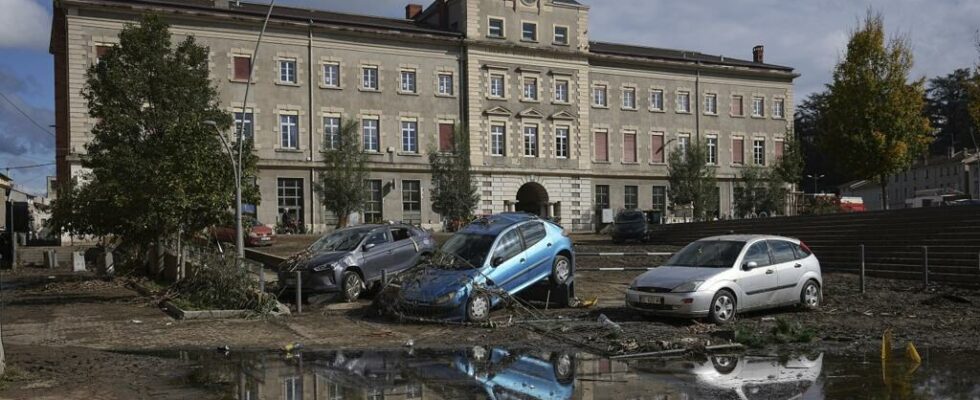The town of Breil-sur-Roya (Alpes-Maritimes) has just banned natural disasters. A way for the mayor LR, Sébastien Olharan, to attract the attention of the public authorities and to protest against the insurers who refuse to cover the 70 buildings in his territory. A situation that more and more municipalities in France are experiencing due to the effects of climate change.
3 mins
“ An absurd response for a situation that is even more absurd »: Sébastien Olharan accepts his surprising decision to ban natural disasters in Breil-sur-Roya. The historic insurer of this southeastern town of 2,300 souls withdrew after having had to pay 6 of the 10 million euros in damage to the town’s public buildings following the devastating passage of storm Alex in 2020. A case far from being isolated in France.
“ More and more municipalities are no longer able to find an insurer or are insured with minimalist guarantees, very high contributions and even higher deductibles. This is an unsustainable situation. », deplores the councilor at the microphone of Lucile Gimberg.
We must find a political solution, either to force insurers to cover local authorities under bearable conditions, or by creating another system (…) which allows risk to be pooled. A sort of public or public-private mutual fund.
Sébastien Olharan, mayor of Breil-sur-Roya, “banned” natural disasters
Increasing insurance
Like every year, January 1st rhymes with new things in France. One of them will undoubtedly not satisfy mayors like Sébastien Olharan: the “CatNat” surcharge is increasing. Behind this mysterious name hides an issue that is already sensitive today and even more so for the coming years, explains Pauline Gleizejournalist in the Environment department of RFI.
“CatNat” is short for natural disaster. In France, when you take out home insurance or car insurance, you must also contribute to the CatNat scheme. It was created in the 1980s to improve compensation. In fact, it is a “public-private” system. To summarize in broad terms, when a state of natural disaster is declared, you can turn to your insurer, and the latter will be able to contact what is called the Central Reinsurance Fund (CCR). This organization will take charge of at least half of the losses.
And therefore, to supplement this CatNat plan, policyholders paid the equivalent of 12% of the amount of their comprehensive home insurance. It now rises to 20%, while for automobile contracts, it rises from 6 to 9%.
Also read[Vos réactions] Mayotte: is the French state up to the disaster?
The rate is rising… because natural disasters are increasing
The rate of this contribution has not changed for 25 years. But the number of natural disasters is increasing and it is becoming more and more expensive. In 2023, the bill for insurers in France amounted to 6.5 billion euros, compared to an average of 3.7 billion euros between 2010 and 2019. And the Central Reinsurance Fund has made its calculations: it estimates that the number of claims could increase by 40% by 2050.
Moreover, while 8 percentage points may seem like a lot, it should not be enough to maintain the balance of the system in the long term. A bill is on the table. The text provides for an automatic revaluation mechanism for this additional premium.
According to the Association of Mayors of France, 10% of municipalities are seeing their insurance contracts terminated, or even significantly increased. Not necessarily for reasons of natural risks, but climatic hazards are part of the list of reasons. In 2024, for example, Les Sables d’Olonnes, a town exposed to the risk of natural disasters, found itself without insurance.
